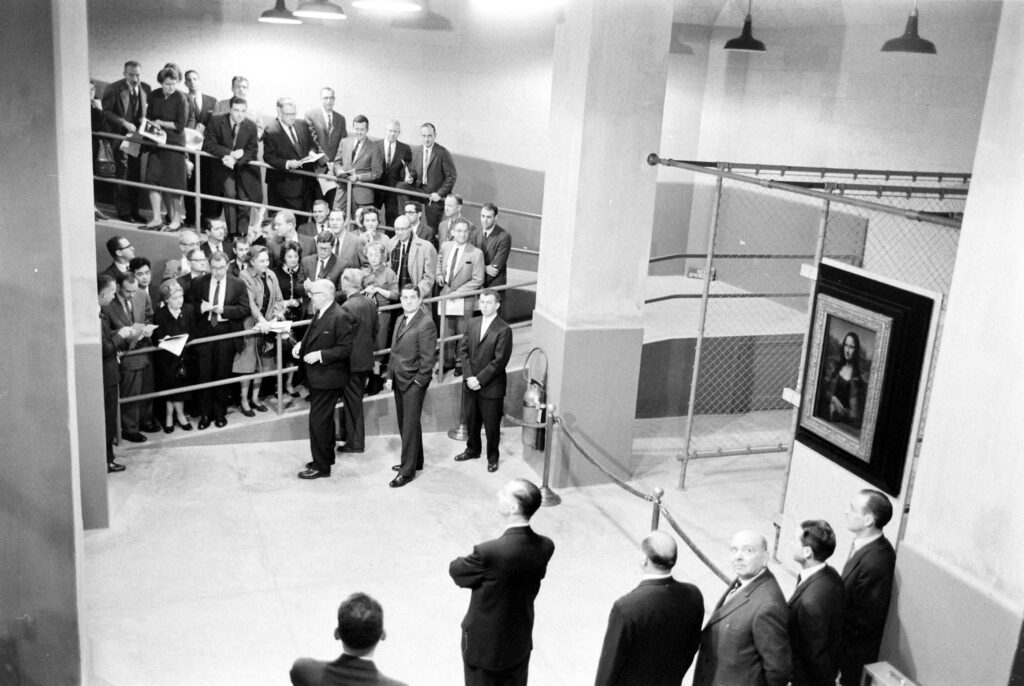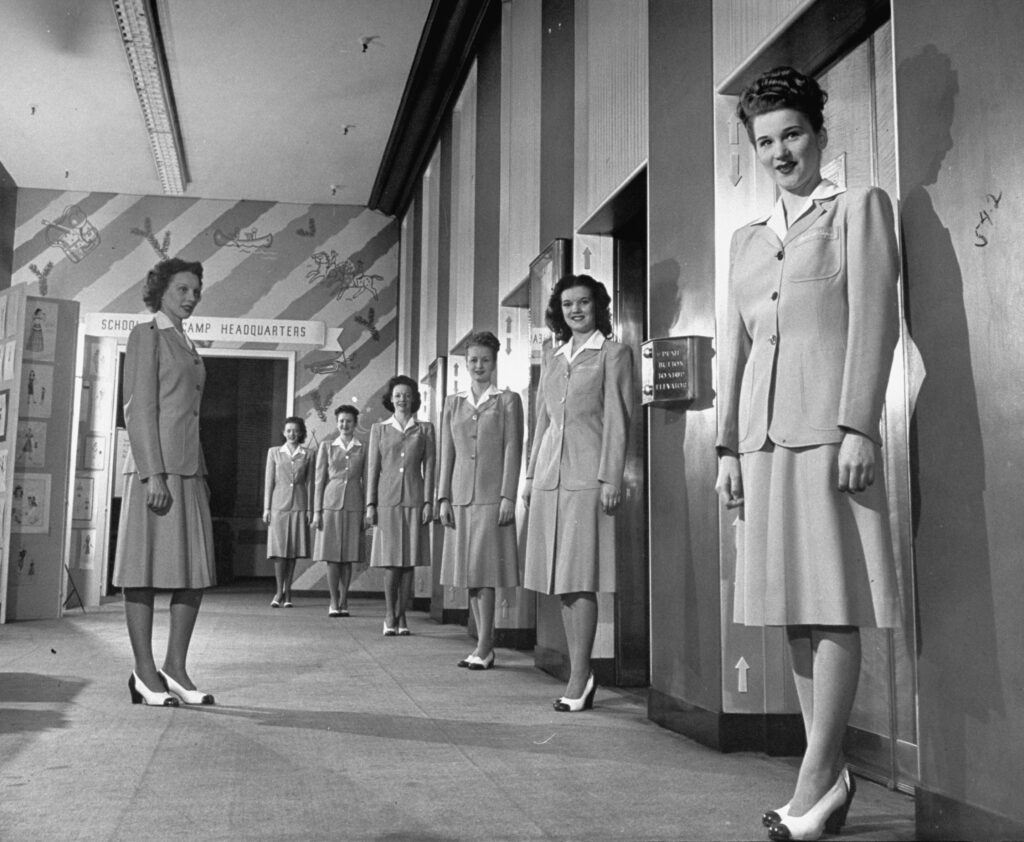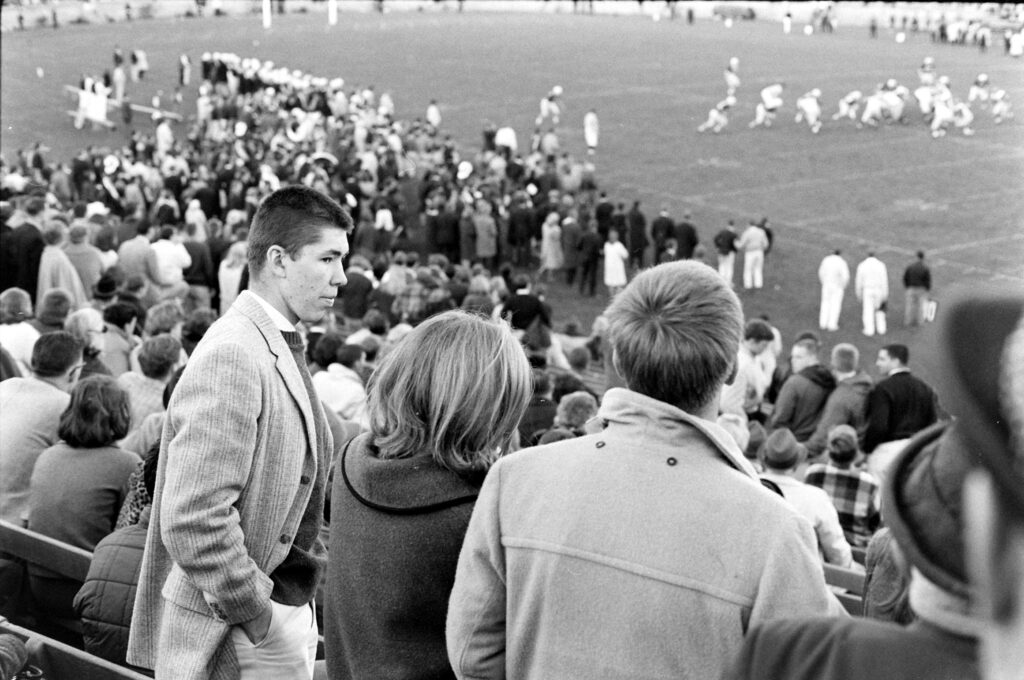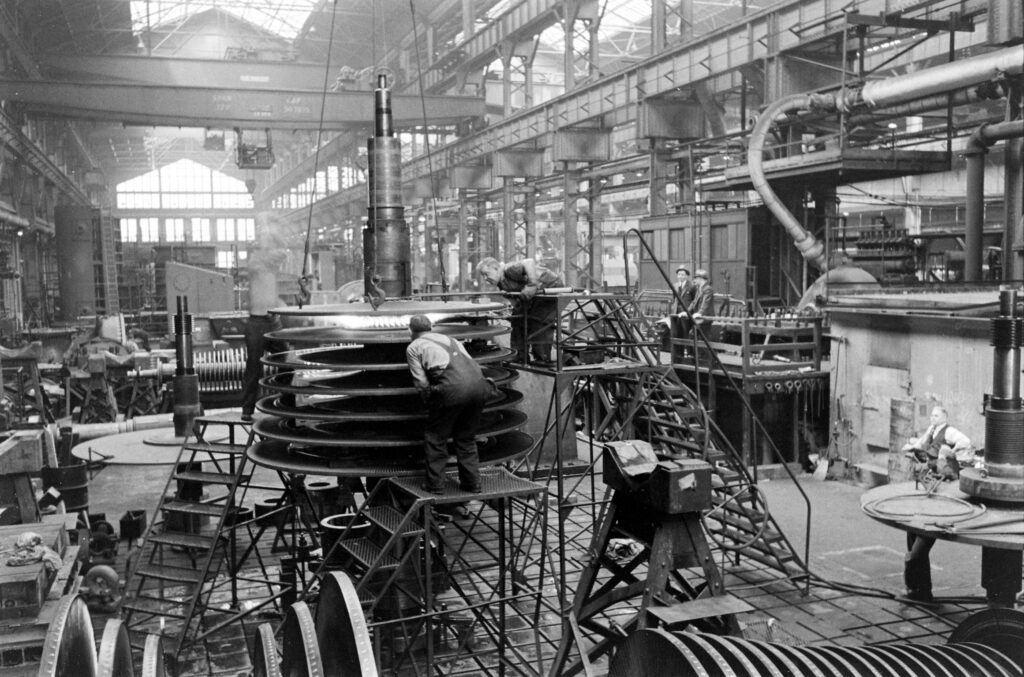Written By: Bill Syken
Gary Cooper appeared in 117 acting movies, but he is best remembered for his starring role in High Noon. In that movie he played Marshal Will Kane, the one good man who was both willing and able to stand down evil in a small town. Cooper’s persona was so singular that decades later on the television show The Sopranos, Cooper was repeatedly held up as the epitome of lost manliness. Tony Soprano would often lament, “What ever happened to Gary Cooper, the strong, silent type?”
When Cooper died of cancer at the age of 60 on May 13, 1961, some identified it right away as the end of an era. LIFE’s issue of May 26, 1961 quoted the Italian newspaper Corriere della Sera as saying, “Perhaps with him there is ended a certain America…that of the frontier and of innocence which had or was believed to have an exact sense of the dividing line between good and evil.”
Cooper’s funeral, at the Church of the Good Shepherd in Beverly Hills, brought out Hollywood royalty. Actor John Wayne, who LIFE called in its report on the funeral “Coop’s successor as dean of cowboys,” attended with his wife. The pallbearers included good friends Jack Benny and Jimmy Stewart. It was Stewart who, at the Academy Awards several weeks prior, had accepted a lifetime achievement award on the behalf of the ailing Cooper. In his acceptance speech Stewart, nearly breaking up at one point, said, “Coop, I’ll get this to you right away. And Coop, I want you to know this, that with this goes all the warm friendship and the affection and the admiration and the deep, the deep respect of all of us. We’re very, very proud of you, Coop. All of us are tremendously proud.”
Cooper’s memorial was also attended by Frank Sinatra and Dean Martin. Those leading lights of the Rat Pack had hosted a dinner for Cooper in January 1961 at the Friar’s Club. Bob Hope came to the church to pay his respects to Cooper, as did Marlene Dietrich, who had costarred with Cooper in the 1930 films Morocco and Desire. Alec Guinness, Karl Malden, Dinah Shore, Rosalind Russell, and many others were in attendance as well.
LIFE’s tribute to Cooper, which was headlined “Hollywood Mourns a Good Man,” ran for eight pages. The story on his life and career included an anecdote about the actor’s surprising encounter with a very different icon of his day, Cubist painter Pablo Picasso. “When Cooper met Pablo Picasso in France, he said `You’re a hell of a guy, but I really don’t get the pictures. The great artist was delighted.`That doesn’t matter,’ Picasso said. “If you really want to do something for me, get me one of those hats you wear in the movies.” Picasso (who got the hat and sent Cooper a painting) was not alone in being charmed by Cooper’s directness and his refusal to be what he was not.”
Most photos of LIFE’s photos of Cooper’s funeral focused on the mourners, but some showed the crowd. While some onlookers were no doubt attracted by the celebrities, many look as if they too were lamenting the passing of the actor who personified the strong, silent type.

Funeral services for actor Gary Cooper, Los Angeles, 1961.
J.R. Eyerman/LIFE Pictures/Shutterstock

John Wayne and wife arrived for funeral service for actor Gary Cooper, Los Angeles, 1961.
Grey Villet/LIFE Pictures/Shutterstock

Frank Sinatra arrived at funeral services for Gary Cooper, Los Angeles, 1961.
Grey Villet/LIFE Pictures/Shutterstock

Dean Martin (left) arrived at the funeral service for Gary Cooper, Los Angeles, 1961.
Grey Villet/LIFE Pictures/Shutterstock

Bob Hope arrived at funeral services for Gary Cooper, Los Angeles, 1961.
Grey Villet/LIFE Pictures/Shutterstock

Alec Guinness (center) and Karl Malden (back left) arrived at church for funeral service for actor Gary Cooper, Los Angeles, 1961.
Grey Villet/LIFE Pictures/Shutterstock

Actress Marlene Dietrich arrived at funeral services for Gary Cooper, Los Angeles, 1961.
Grey Villet/LIFE Pictures/Shutterstock

Actress Rosalind Russell and her husband, producer Frederick Brisson, arrived at church for the funeral service for actor Gary Cooper, Los Angeles, 1961.
Grey Villet/LIFE Pictures/Shutterstock

Singer Dinah Shore arrived at the funeral service for actor Gary Cooper, Los Angeles, 1961,
Grey Villet/LIFE Pictures/Shutterstock

Jimmy Stewart (right) and Jack Benny (two behind Stewart) were among the friends who served as pallbearers at the funeral of Gary Cooper, Los Angeles, 1961.
Grey Villet/LIFE Pictures/Shutterstock

Jack Benny (back left) and Jimmy Stewart (back, right) were among the friends who served as pallbearers at Gary Cooper’s funeral, Los Angeles, 1961.
Grey Villet/LIFE Pictures/Shutterstock

Jimmy Stewart (back left) and Jack Benny (front left) were among the friends who served as pallbearers at the funeral of Gary Cooper, Los Angeles 1961.
Grey Villet/LIFE Pictures/Shutterstock

Photographers and police at the funeral for Gary Cooper, Los Angeles, 1961.
Grey Villet/LIFE Pictures/Shutterstock

Onlookers at the funeral of Gary Cooper, Los Angeles 1961.
Grey Villet/LIFE Pictures/Shutterstock

Onlookers at the funeral of Gary Cooper, Los Angeles 1961.
Grey Villet/LIFE Pictures/Shutterstock

Veronica Balfe, widow of Gary Cooper, arrived at his funeral, Los Angeles, 1961.
Grey Villet/LIFE Pictures/Shutterstock
























